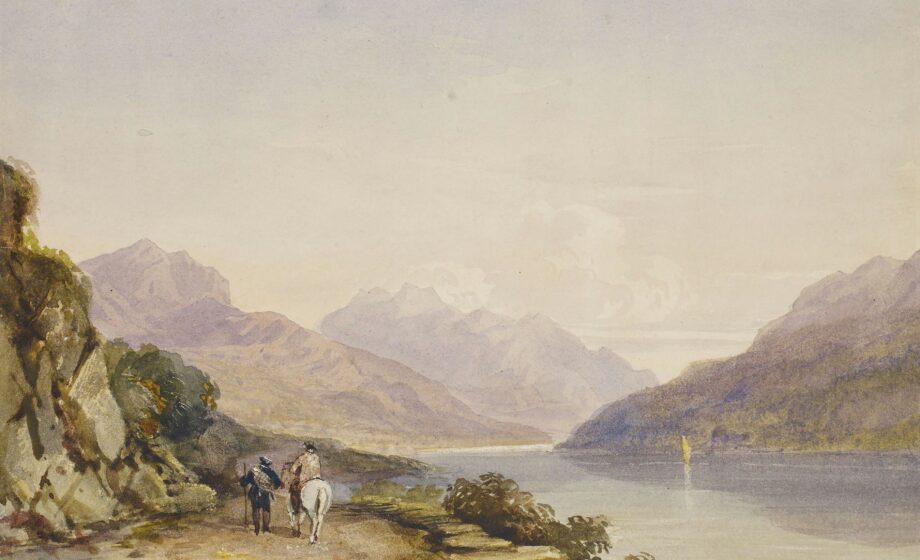15 Must-Read Novels by Indian Authors
Indian literature is a rich tapestry woven with diverse stories, vibrant characters, and intricate narratives.
From the poignant tales of love and loss to gripping thrillers and insightful reflections on society, Indian authors have contributed immensely to the global literary landscape.
In this blog, we present a curated list of 15 outstanding novels by Indian authors that encapsulate the essence of Indian culture, heritage, and human experience.
1. “The God of Small Things” by Arundhati Roy:
– Synopsis: Set in Kerala, this novel follows the lives of fraternal twins Rahel and Estha as they navigate through a tumultuous family history, societal norms, and forbidden love.
– Description: Arundhati Roy’s debut masterpiece delves deep into the complexities of caste, class, and politics in post-colonial India, weaving a narrative that is both haunting and evocative.
– Author: Arundhati Roy
– Genre: Literary Fiction
2. “Midnight’s Children” by Salman Rushdie:
– Synopsis: Born at the stroke of midnight on the day of India’s independence, Saleem Sinai discovers that he shares a telepathic connection with other children born at the same time, reflecting the tumultuous journey of India post-independence.
– Description: Salman Rushdie’s magnum opus is a sprawling epic that blends magical realism with historical events, offering a kaleidoscopic view of India’s cultural, political, and social landscape.
– Author: Salman Rushdie
– Genre: Magical Realism
3. “A Suitable Boy” by Vikram Seth:
– Synopsis: Set in post-independence India, this novel follows the journey of Lata Mehra as her mother strives to find her a suitable boy for marriage, amidst a backdrop of political upheaval and societal expectations.
– Description: Vikram Seth’s monumental work is a panoramic portrayal of Indian society, offering a nuanced exploration of love, politics, and tradition against the backdrop of a changing nation.
– Author: Vikram Seth
– Genre: Historical Fiction
4. “The White Tiger” by Aravind Adiga:
– Synopsis: Balram Halwai, a chauffeur from a small village, narrates his journey from poverty to entrepreneurial success in modern-day India, shedding light on the harsh realities of social inequality and corruption.
– Description: Aravind Adiga’s darkly humorous novel is a searing indictment of India’s class divide and the ruthless pursuit of power, offering a compelling critique of the country’s economic disparities.
– Author: Aravind Adiga
– Genre: Satirical Fiction
5. “Train to Pakistan” by Khushwant Singh:
– Synopsis: Set during the partition of India in 1947, this novel depicts the lives of residents in a small village on the border, torn apart by communal violence and political turmoil.
– Description: Khushwant Singh’s poignant narrative captures the human tragedy amidst the chaos of partition, exploring themes of identity, belonging, and the fragility of peace.
– Author: Khushwant Singh
– Genre: Historical Fiction
6. “The Palace of Illusions” by Chitra Banerjee Divakaruni:
– Synopsis: Retelling the epic Mahabharata from the perspective of Draupadi, this novel offers a feminist reinterpretation of the ancient myth, exploring the complexities of love, power, and destiny.
– Description: Chitra Banerjee Divakaruni’s enchanting narrative breathes new life into a timeless tale, infusing it with depth and nuance while illuminating the inner world of one of its most enigmatic characters.
– Author: Chitra Banerjee Divakaruni
– Genre: Mythological Fiction
7. “The Inheritance of Loss” by Kiran Desai:
– Synopsis: Set in the Himalayan foothills, this novel intertwines the lives of an embittered judge, his orphaned granddaughter, and their cook, exploring themes of identity, migration, and cultural clash.
– Description: Kiran Desai’s poignant narrative delves into the complexities of post-colonial India, examining the legacy of colonialism and the search for belonging in a rapidly changing world.
– Author: Kiran Desai
– Genre: Literary Fiction
8. “The Guide” by R.K. Narayan:
– Synopsis: Raju, a tour guide in a small town, becomes entangled in a web of deceit and self-discovery when he meets Rosie, a dancer with dreams of stardom, leading to unexpected consequences.
– Description: R.K. Narayan’s timeless classic is a nuanced exploration of human nature, morality, and redemption, set against the backdrop of rural India’s charm and simplicity.
– Author: R.K. Narayan
– Genre: Literary Fiction
9. “The Lowland” by Jhumpa Lahiri:
– Synopsis: Spanning decades and continents, this novel follows the lives of two brothers, Subhash and Udayan, whose paths diverge due to political activism and personal choices, leaving lasting consequences for their families.
– Description: Jhumpa Lahiri’s exquisite prose illuminates the bonds of love and betrayal, loss and longing, against the backdrop of India’s political upheaval and the immigrant experience in America.
– Author: Jhumpa Lahiri
– Genre: Literary Fiction
10. “English, August: An Indian Story” by Upamanyu Chatterjee:
– Synopsis: Agastya Sen, a young civil servant, navigates the absurdities of bureaucracy and the ennui of small-town life in rural India, grappling with his identity and aspirations in a world of contradictions.
– Description: Upamanyu Chatterjee’s darkly comic novel is a scathing critique of the Indian administrative system and the existential angst of a generation caught between tradition and modernity.
– Author: Upamanyu Chatterjee
– Genre: Satirical Fiction
11. “The Shadow Lines” by Amitav Ghosh:
– Synopsis: Through the memories of an unnamed narrator, this novel traces the interconnected lives of two families across India, Bangladesh, and England, exploring the legacy of colonialism, borders, and identity.
– Description: Amitav Ghosh’s evocative narrative blurs the lines between past and present, reality and imagination, weaving a tapestry of history and personal experience that resonates deeply with readers.
– Author: Amitav Ghosh
– Genre: Literary Fiction
12. “A Fine Balance” by Rohinton Mistry:
– Synopsis: Set in 1970s India, this novel follows the lives of four characters from different backgrounds whose fates become intertwined amidst political unrest, social upheaval, and economic hardship.
– Description: Rohinton Mistry’s epic saga is a testament to the resilience of the human spirit in the face of adversity, offering a poignant portrayal of friendship, survival, and hope in turbulent times.
– Author: Rohinton Mistry
– Genre: Historical Fiction
13. “Serious Men” by Manu Joseph:
– Synopsis: Ayyan Mani, a lowly assistant to a renowned scientist, concocts an elaborate scheme involving his son’s alleged genius, leading to unexpected consequences that challenge societal norms and scientific ethics.
– Description: Manu Joseph’s razor-sharp satire skewers India’s obsession with education, success, and social hierarchy, offering a biting commentary on the collision of ambition and morality in contemporary society.
– Author: Manu Joseph
– Genre: Satirical Fiction
14. “The Namesake” by Jhumpa Lahiri:
– Synopsis: Following the life of Gogol Ganguli, a first-generation Indian American navigating the complexities of identity, cultural assimilation, and family ties, this novel explores the immigrant experience with poignancy and insight.
– Description: Jhumpa Lahiri’s deeply moving narrative delves into the universal themes of belonging and self-discovery, illuminating the intricacies of family dynamics and the search for identity across generations.
– Author: Jhumpa Lahiri
– Genre: Literary Fiction
15. “Untouchable” by Mulk Raj Anand:
– Synopsis: Through a day in the life of Bakha, an “untouchable” sweeper in colonial India, this novel exposes the dehumanizing effects of caste discrimination and social inequality, sparking a conversation about justice and dignity.
– Description: Mulk Raj Anand’s groundbreaking novel is a powerful indictment of India’s caste system and the plight of the marginalized, offering a searing portrayal of injustice and resilience in the face of oppression.
– Author: Mulk Raj Anand
– Genre: Social Realism
Indian literature is a treasure trove of diverse voices, perspectives, and narratives that reflect the complexities and richness of Indian society and culture. From timeless classics to contemporary masterpieces, these novels by Indian authors offer readers a glimpse into the heart and soul of India, inviting them to explore its myriad stories and experiences with curiosity and empathy.
FAQ of Indian Writers’ Novels:
1. What criteria were used to select these novels?
– The novels were selected based on their literary merit, cultural significance, and impact on Indian literature and society.
2. Are these novels suitable for readers of all ages?
– While most of these novels are suitable for adult readers, some may contain mature themes and content. It is advisable to check individual synopses and reviews before reading.
3. Can these novels be found in translation?
– Many of these novels have been translated into various languages, making them accessible to a wider audience beyond English readers.
4. Are there any other notable novels by Indian authors that didn’t make the list?
– Yes, there are many other notable novels by Indian authors that deserve recognition. This list represents just a selection of some of the most acclaimed works in Indian literature.
5. Are there any upcoming Indian authors whose works show promise?
– Absolutely! Indian literature continues to thrive with new voices emerging across genres. Keep an eye out for debut novels and rising stars in the literary scene.
6. Are these novels available in e-book format?
– Yes, most of these novels are available in e-book format, making it convenient for readers to access them digitally.
7. Can these novels be recommended for academic study?
– Certainly! Many of these novels are studied in academic settings due to their literary merit and thematic richness, offering valuable insights into Indian society, culture, and history.
8. Are there any film adaptations of these novels?
– Several of these novels have been adapted into films or television series, bringing their stories to life on the screen. Watching these adaptations can complement the reading experience.
9. Are there any regional language novels included in this list?
– While this list primarily focuses on novels written in English, Indian literature encompasses a vast array of languages, each with its own rich literary tradition. Readers are encouraged to explore regional language novels as well.
10. How can readers support Indian authors?
– Readers can support Indian authors by purchasing their books, attending literary events, promoting their work on social media, and advocating for diverse voices in literature.
11. Are there any Indian authors who write in genres other than literary fiction?
– Yes, Indian authors write across various genres, including mystery, romance, science fiction, fantasy, and more. This list showcases a diverse range of genres and writing styles.
12. Are these novels only relevant to Indian readers, or can international readers also enjoy them?
– These novels offer universal themes and human experiences that resonate with readers worldwide, regardless of their cultural background. International readers can gain valuable insights into Indian culture and society through these novels.
13. Can these novels be recommended for book clubs or group discussions?
– Absolutely! Many of these novels provoke thought-provoking discussions on themes such as identity, family, politics, and social justice, making them ideal choices for book clubs and group discussions.
14. Are there any resources available for readers interested in learning more about Indian literature?
– Yes, there are numerous resources available, including literary journals, websites, podcasts, and academic publications, that delve into various aspects of Indian literature, authors, and themes.
15. How can readers engage with Indian literature beyond reading novels?
– Readers can explore other forms of Indian literature, such as poetry, short stories, plays, and essays. They can also attend literary festivals, join book clubs, and support initiatives that promote diversity in literature.
| No. | Novel Title | Synopsis | Description | Author | Genre |
|---|---|---|---|---|---|
| 1 | The God of Small Things | Set in Kerala, follows the lives of fraternal twins Rahel and Estha navigating through family history, societal norms, forbidden love | Delves into caste, class, and politics in post-colonial India. Haunting and evocative. | Arundhati Roy | Literary Fiction |
| 2 | Midnight’s Children | Saleem Sinai discovers telepathic connection with others born at India’s independence | Blends magical realism with historical events, offering kaleidoscopic view of India’s cultural, political, and social landscape. | Salman Rushdie | Magical Realism |
| 3 | A Suitable Boy | Follows Lata Mehra’s journey in post-independence India seeking a suitable boy for marriage | Panoramic portrayal of Indian society, exploring love, politics, and tradition amidst a changing nation. | Vikram Seth | Historical Fiction |
| No. | Novel Title | Synopsis | Description | Author | Genre |
|---|---|---|---|---|---|
| 4 | The White Tiger | Balram Halwai narrates journey from poverty to success, highlighting social inequality and corruption | Darkly humorous critique of India’s class divide and pursuit of power. Compelling commentary on economic disparities. | Aravind Adiga | Satirical Fiction |
| 5 | Train to Pakistan | Set during India’s partition, depicts communal violence and turmoil in a border village | Poignant narrative capturing human tragedy amidst chaos of partition. Explores identity, belonging, and the fragility of peace. | Khushwant Singh | Historical Fiction |
| 6 | The Palace of Illusions | Retelling of Mahabharata from Draupadi’s perspective, exploring love, power, and destiny | Feminist reinterpretation of ancient myth, infusing depth and nuance into Draupadi’s character. | Chitra Banerjee Divakaruni | Mythological Fiction |
| No. | Novel Title | Synopsis | Description | Author | Genre |
|---|---|---|---|---|---|
| 7 | The Inheritance of Loss | Interweaves lives of a judge, his granddaughter, and their cook in the Himalayan foothills | Poignant exploration of post-colonial India’s complexities, examining legacy of colonialism and search for belonging. | Kiran Desai | Literary Fiction |
| 8 | The Guide | Raju, a tour guide, entangled in deceit and self-discovery with Rosie, a dancer | Nuanced exploration of human nature, morality, and redemption amidst rural India’s charm. | R.K. Narayan | Literary Fiction |
| 9 | The Lowland | Follows two brothers, Subhash and Udayan, amidst political activism and personal choices | Exquisite portrayal of love, betrayal, loss, and longing against the backdrop of political upheaval and immigrant experience. | Jhumpa Lahiri | Literary Fiction |
| No. | Novel Title | Synopsis | Description | Author | Genre |
|---|---|---|---|---|---|
| 10 | English, August | Agastya Sen navigates absurdities of bureaucracy and ennui of small-town life | Darkly comic critique of Indian administrative system and existential angst of a generation torn between tradition and modernity. | Upamanyu Chatterjee | Satirical Fiction |
| 11 | The Shadow Lines | Unnamed narrator traces interconnected lives of two families across India, Bangladesh, and England | Evocative narrative blurring lines between past and present, reality and imagination. Weaves tapestry of history and personal experience. | Amitav Ghosh | Literary Fiction |
| 12 | A Fine Balance | Set in 1970s India, follows lives of four characters amidst political unrest and economic hardship | Testament to resilience of human spirit in face of adversity, offering poignant portrayal of friendship, survival, and hope. | Rohinton Mistry | Historical Fiction |
| No. | Novel Title | Synopsis | Description | Author | Genre |
|---|---|---|---|---|---|
| 13 | Serious Men | Ayyan Mani concocts scheme involving son’s alleged genius, challenging societal norms and scientific ethics | Razor-sharp satire on India’s obsession with education, success, and social hierarchy. Commentary on ambition and morality in society. | Manu Joseph | Satirical Fiction |
| 14 | The Namesake | Follows Gogol Ganguli navigating identity, cultural assimilation, and family ties as a first-generation Indian American | Deeply moving exploration of belonging and self-discovery, illuminating family dynamics and search for identity across generations. | Jhumpa Lahiri | Literary Fiction |
| 15 | Untouchable | Follows Bakha, an “untouchable” sweeper, exposing dehumanizing effects of caste discrimination and social inequality | Powerful indictment of India’s caste system, offering searing portrayal of injustice and resilience in face of oppression. | Mulk Raj Anand | Social Realism |
I have used ChatGPT to compile the list but it has been edited by a human. ChatGPT is a computer that helps me.
I received some suggestions from ChatGPT, which I then edited with a human editor. The edited list includes some of the best novels to give you a good read. It’s a wonderful collection of important books written by Indian authors.








